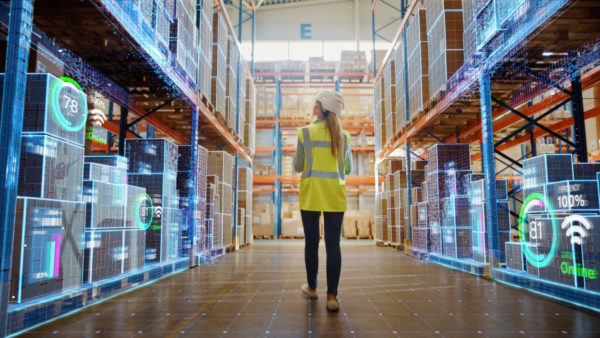French companies realized that it was essential to restore their long-term performance to make face the strong European and international business competition, There is no alternative but to impose itself in the new digital and innovative world to achieve this.
The history of the industry
Industry history began when the steam engine appeared in the 18th century.
Its first goal is to create material goods by transforming and using raw materials in economic activities.
The industrial revolution
Four industrial revolutions have taken place in the last centuries. There are four of them! These waves of industrialization have traveled around the world, from country to country, bringing many consequences to the industry.
The first two revolutions concerned the energy with the first steam engines and the production line and the use of electrical energy.
The third one also concerned energy and computers with the first programmable automatons. And finally, the fourth, Industry 4.0, has some peculiarities since it is the first industrial revolution that concerns the digitalization of industry. This revolution aims essentially to affect the management of data to prepare tomorrow’s factory.
One of them will particularly mark history. It is the first industrial revolution, the biggest one! It began in 1760 and ended in 1840. It represents a great turning point in the history of the industry. Indeed, it will lead to an upheaval in this time’s society. We will thus attend a mutation of a craft society to another one gradually commercial and industrial.
Industry 4.0
As we have seen in recent years, the great change in Industry 4.0 is the numerical and digitalization. And the presence of connected objects is increasing day by day.
Born at the Hannover Fair (Germany) in 2011, Industry 4.0 aims to significantly improve production methods through the participation of humans and machines. This new industry also helps to meet customers’ growing expectations for customized products. Industry 4.0, therefore, has a competitive edge over the big web giants that occupy a very large place in customer relations. Namely, it currently holds the monopoly in access to its user data.
This industry gives life to an interconnected organization in which many people interact: employees, machines, and products.
Industry 4.0 in small and medium-sized companies
Industry 4.0 concerns all players in the industrial sector of all sizes and sectors.
For several years now, Industry 4.0 has already proven itself in SMEs (small- and medium-sized enterprises).
Indeed, these new technologies participate in the digitalization of the industrial processes of companies and bring them many industrial advantages.
To evaluate these advantages, companies have conducted studies to measure their performance with quantitative and representative elements according to their strategic plan.
These new digital technologies allow companies to produce faster, more efficiently, at lower cost, in shorter timeframes, and more secure.
They also allow them to modify their production methods autonomously, which is of considerable interest in managing production data.
As a result, they offer real-time decision-making, thus increasing companies’ productivity, flexibility, and agility.
Industry 4.0 affects all industry players of any size and in any sector.
Software solutions to assist manufacturers in this digital transformation
Software solutions help industrial companies digitalize their processes and approach the industry of the future with confidence.
Depending on the sector of activity and needs, choose a software suite or a software module to reach the objectives:
Food industry
To choose the right solution is necessary to verify that it offers functionalities that will allow managing the production efficiently, pilot the batches, apply total traceability on the food products, and manage the flows and the stocks.
Pharmaceutical, biotechnology, cosmetology
For this sector, mainly the pharmaceutical one, serialization, and aggregation have been standardized in the EU and internationally. The objective is to choose the best software to meet global requirements. Other selection criteria such as performance optimization and energy efficiency will be important.
Manufacturer
If you are a manufacturer or equipment supplier, be careful about the solutions. First, check that it offers production monitoring, control, traceability, automated data collection, and quality modules.
Chemicals
Software suites propose a good intervention at different levels of production operations management: efficiency, traceability, and productivity.
The future industry is already underway, do not waste time; pull the digital lever to be the most competitive.



